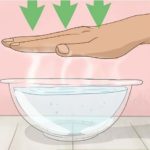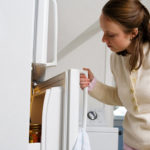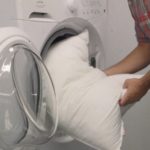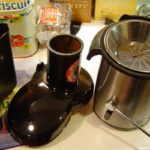During sweltering summer days, air conditioners become a necessity in every household. However, aside from cooling the air, air conditioners also produce a significant amount of wastewater. Many people wonder if this water can be reused and what potential risks are associated with improper use. Join us as we unravel this issue, helping you make an informed decision about utilizing wastewater from your air conditioner.
1 Why Water Discharges from Air Conditioners
Water discharge from air conditioners is due to the condensation of water vapor in the air. When hot, humid air passes through the air conditioner’s evaporator coil, it undergoes rapid cooling, causing the water vapor in the air to condense and form water droplets. This condensate then flows out through the air conditioner’s drainage system.
Additionally, other factors can contribute to water discharge from air conditioners, including:
-
Improper installation: Incorrect installation of an air conditioner can lead to a blocked drainage pipe, resulting in water overflow.
-
Dirty air filters: Clogged air filters obstruct airflow, leading to increased condensation and water discharge.
-
Low refrigerant levels: Insufficient refrigerant levels can diminish the cooling capacity of the air conditioner, resulting in increased condensation and water discharge.
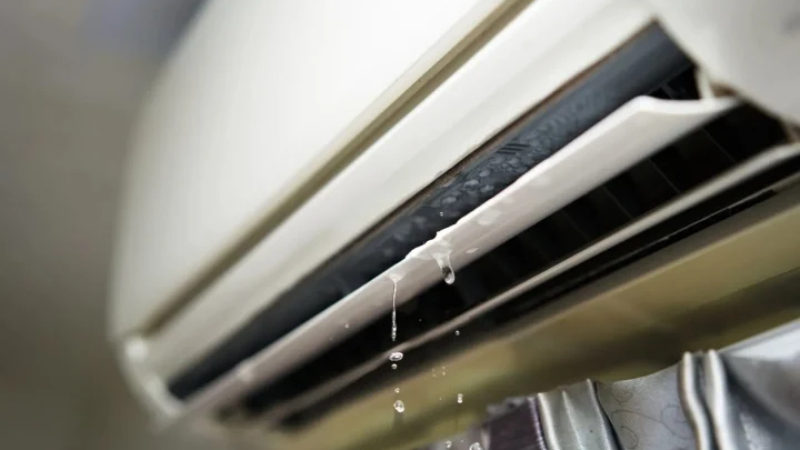 Water discharge from air conditioners is due to the condensation of water vapor in the air
Water discharge from air conditioners is due to the condensation of water vapor in the air
2 Is the Water Discharged from Air Conditioners Clean?
The water discharged from air conditioners may contain certain impurities, including dust, bacteria, and mold. Therefore, it is not advisable to use this water directly for drinking or cooking.
However, this water can still be reused for specific purposes, such as:
-
Gardening: Condensate from air conditioners can provide plants with the necessary moisture without causing them any harm.
-
Car washing: This water is suitable for washing cars as it does not contain detergents and will not damage the car’s paintwork.
-
Household cleaning: Condensate can be used to wipe down surfaces such as furniture and windows.
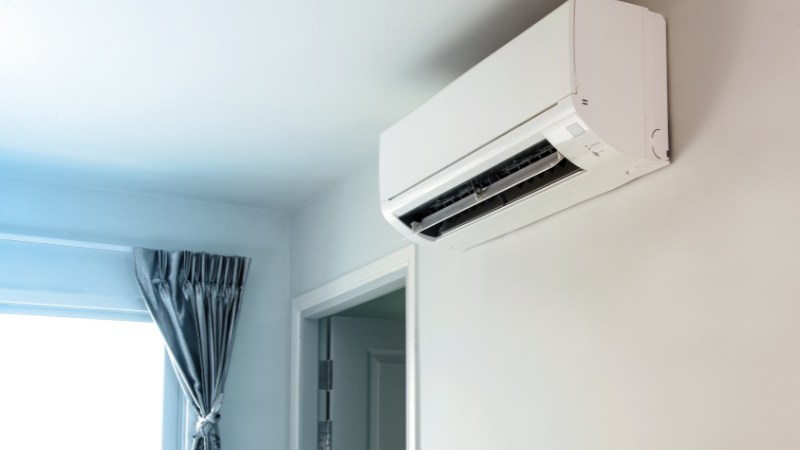 The water discharged from air conditioners may contain impurities
The water discharged from air conditioners may contain impurities
3 Can the Water Discharged from Air Conditioners Be Used?
As mentioned earlier, the water discharged from air conditioners can be reused for specific purposes. However, it is important to consider the following points:
-
Regular AC maintenance: Periodic cleaning of the air conditioner helps remove dust, bacteria, and mold from the air filter and drainage pipes, resulting in cleaner condensate.
-
Proper water collection: Use clean buckets or containers to collect the condensate, avoiding direct contact with the ground or dirty surfaces.
-
Use collected water promptly: Condensate should be used soon after collection to prevent bacterial growth.
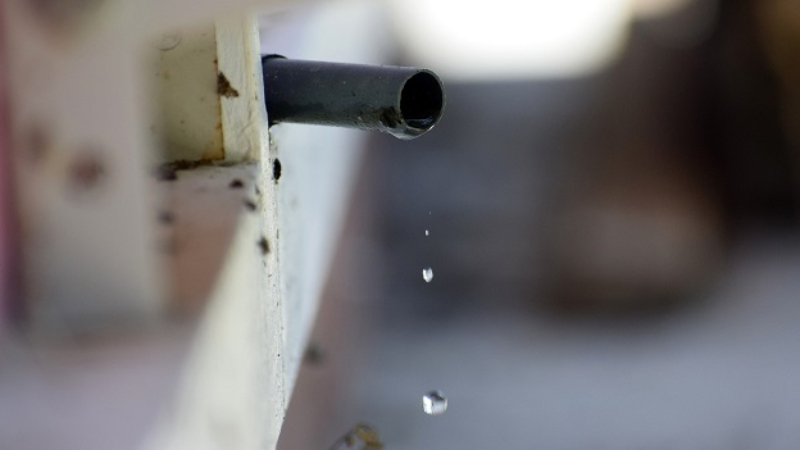 The water discharged from air conditioners can be reused for specific purposes
The water discharged from air conditioners can be reused for specific purposes
4 How to Reuse Water Discharged from Air Conditioners
The water discharged from air conditioners can be utilized for the following purposes:
-
Gardening: Collect the condensate in buckets or containers and use it to water indoor or outdoor plants.
-
Car washing: Use the condensate to wash your car by either spraying it directly onto the car or using a soft cloth.
-
Household cleaning: Dilute the condensate with a small amount of floor cleaner to wipe down indoor surfaces.
Note that if the water discharged from the air conditioner is not clean, it is not advisable to use it for the above purposes. This water may contain impurities and bacteria that can be harmful to your health.
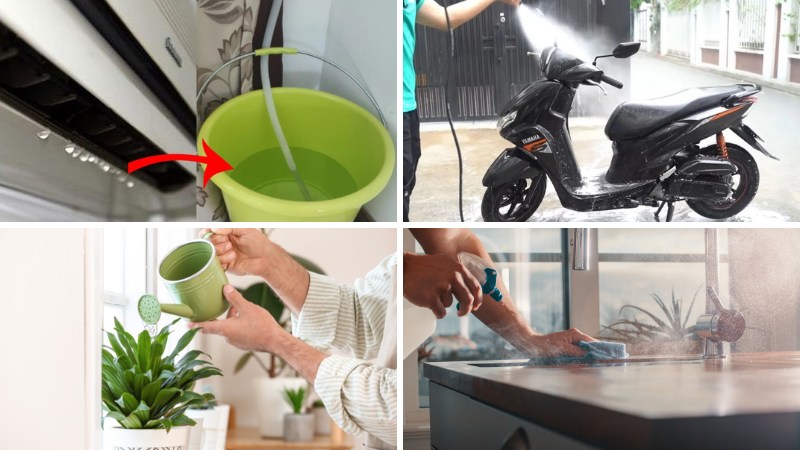 How to reuse water discharged from air conditioners
How to reuse water discharged from air conditioners
5 How to Clean Your Air Conditioner for Cleaner Water Discharge
-
Clean the air filters: Remove and clean the air filters with warm water and soap at least once a month.
-
Clean the evaporator coils: Remove the dust shields and wipe down the evaporator coils to remove any accumulated dust.
-
Inspect and clean the drainage pipes: Ensure the drainage pipes are not clogged and clean them if necessary.
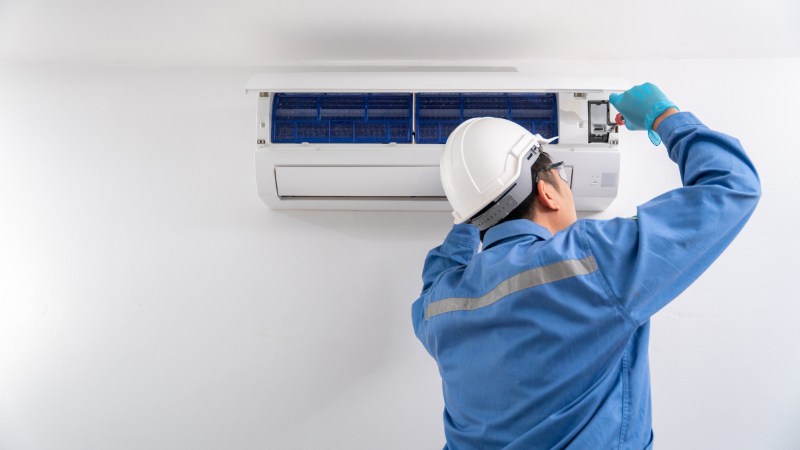 How to clean your air conditioner for cleaner water discharge
How to clean your air conditioner for cleaner water discharge
6 Precautions When Using Water Discharged from Air Conditioners
-
Do not use condensate for drinking or cooking.
-
Avoid using condensate to clean electronic devices.
-
Do not use the condensate if you suspect any malfunction with your air conditioner.
-
Use the water discharged from the air conditioner within 24 hours.
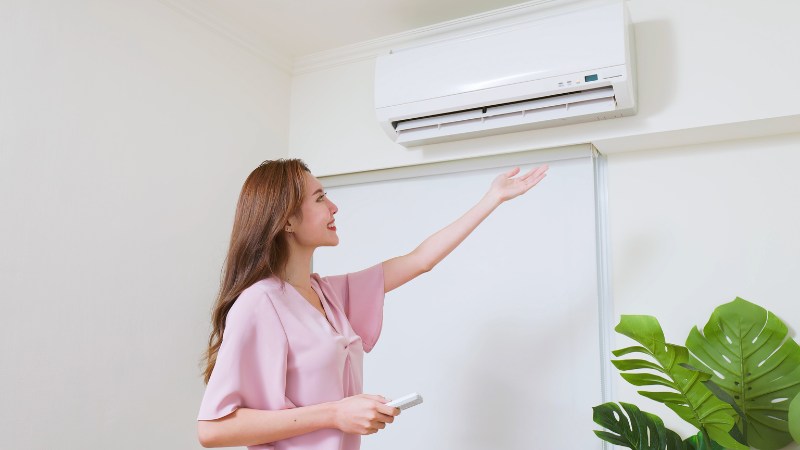 Precautions when using water discharged from air conditioners
Precautions when using water discharged from air conditioners
The water discharged from air conditioners can be reused for specific purposes. However, regular AC maintenance and safe handling of condensate are crucial to ensure both environmental protection and your well-being.
























